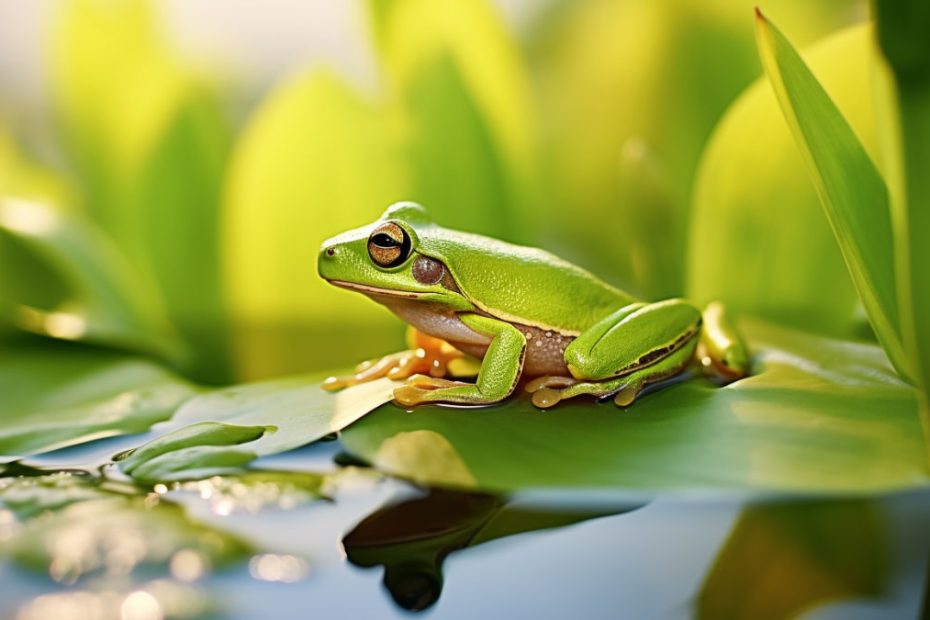Whenever you see a frog, it’s kinda natural to expect it to croak. However, frogs do stop croaking from time to time. And guess what? We get lots of messages for this.
So, why do frogs suddenly stop croaking? There are several reasons, such as mating calls and the presence of predators behind this. Besides, environmental conditions like changes in temperature or rainfall pattern changes, territory declaration, and physiological issues, including exhaustion and disease, might cause this.
We have found some interesting reasons behind why frogs stop croaking all of a sudden. Let’s find out more about it!
Why Do Frogs Suddenly Stop Croaking: 9 Intriguing Reasons
Frogs’ croaking serves several purposes, including mating and territorial displays. But your frog might stop it on the occurrence of some conditions. Here are a few reasons why frogs suddenly stop croaking.
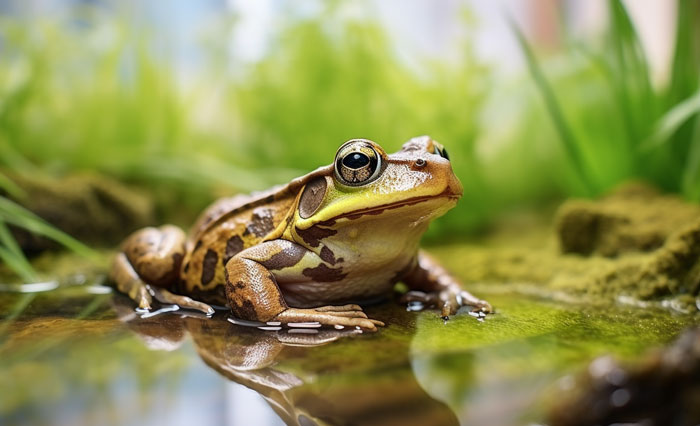
It’s The End Of Mating Season
After the mating season is over, frogs often stop their croaking chorus. Their mating season typically occurs from March to June in the North and November to March in the South. When their desires are met, they tend to go silent.
A list of frog species found in North America, when their mating seasons end and croaking should stop, is provided below.
| Month When Frogs Stop Croaking | Species | Location |
|---|---|---|
| April | Barking Tree Frog, And Gopher Frog | Southern USA |
| May | Pickerel Frog, And Wood Frog | Northern USA, Canada |
| June | Boreal Chorus Frog, And Spring Peeper | Northern USA, Canada |
| July | Mink Frog, Green Frog, And Northern Cricket Frog | Northern USA, Canada |
| August | American Bullfrog | Northern USA, Canada |
| September | American Bullfrog, Little Grass Frog | Southern USA |
It’s the Time Before Sunrise
The croaking of frogs typically starts about dusk and lasts until around 2 or 3 a.m. Meaning — they often start croaking at night and become quiet before sunrise. However, the time may vary depending on different time zones.
Temperature and environmental factors frequently impact frogs’ activity. So, they may stop croaking in the early morning when temperatures drop.
Your frog may have some other reasons behind going quiet during this time. Some assume that they might choose this time to remain silent to avoid attracting predators and birds.
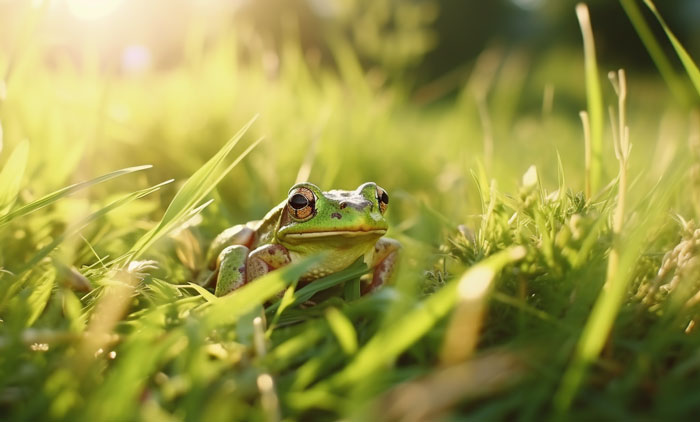
The Rain Has Stopped
As amphibians, frogs require and thrive in wet conditions like rain and humidity. You will notice that even pond frogs come out of hiding when it starts to rain. So, their croaking gets higher when there’s rainfall. But when the rain slows down, so does their noise.
The Weather Condition Is Unfavorable
Frogs croak when there’s rain; true. However, when there’s too much heavy rainfall or other unfavorable weather conditions, the frogs may go silent.
It’s because, in bad weather conditions, frogs are forced out of their hiding. This has a major impact on their behavior.
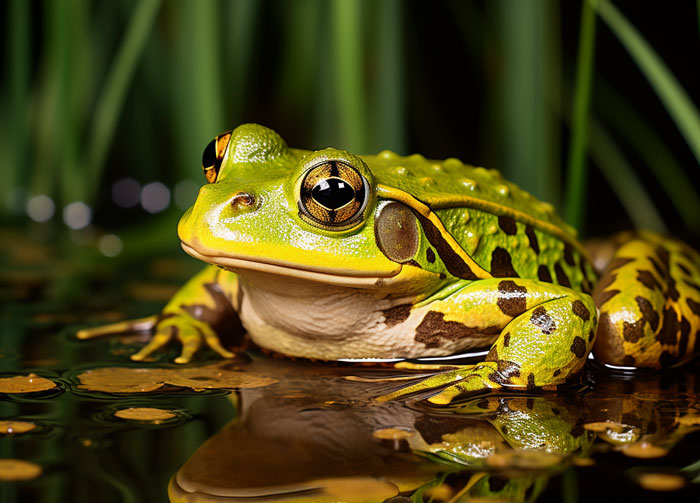
Frogs can successfully reproduce because of the high humidity and the amount of water in the surrounding area during rainy seasons.
But if the weather is unfavorable, there is no use in projecting their mating signals. It’s because their mates might not hear their calls.
Frogs rely on their surroundings to maintain a constant internal temperature. Their metabolic rates drop as the temperature rises, so they seek cover in cold, wet regions to avoid drying out.
They Are Hibernating
Frogs hibernate during the cold season. These animals dive into the water to avoid the cold just when autumn shows up. Frogs do this to conserve energy during their lengthy periods of dormancy. That’s why, when your frogs are going through a hibernation period, they don’t croak.
They enter a condition of metabolic and cardiac hibernation, using their bodily reserves to get them through the winter and into spring.
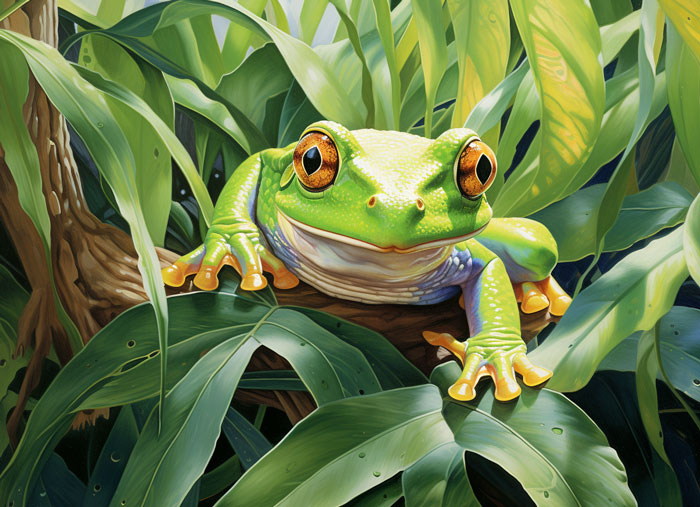
Calling by frogs is most effective when the temperature is at least above 8°C or 46°F, especially in the early spring.
However, frogs of all regions don’t do so. Especially frogs that have adapted themselves to warm weather conditions like those in Asia, South America, Africa, or Australia- don’t have such specific hibernation periods.
Establishing Territory
Alongside mating calls, frogs may also croak to dominate the area and warn the competing mates. When they have already established the territory, they might stop croaking.
Male frogs choose and defend areas near water during the mating season. They claim these areas as their own by croaking to one another. Their calls announce their availability and scare off other males looking to stake their claim to the area.
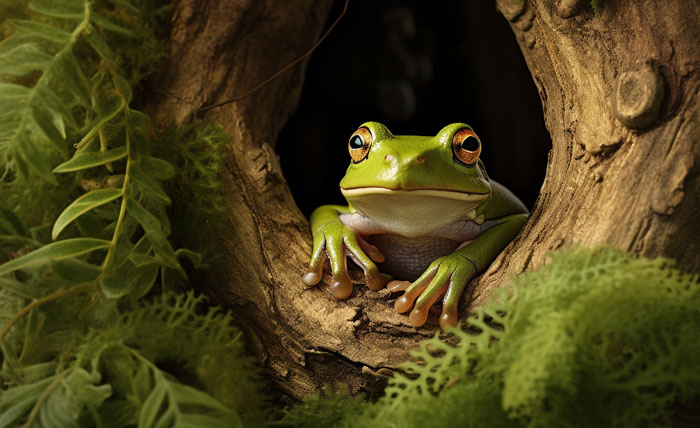
The loudness and frequency of these sounds might vary, but they always have the same purpose: to keep other males out of the territory.
After a male frog has successfully claimed his area, guarded it, and attracted a mate, he may stop croaking altogether.
Predator’s presence
The presence of birds, snakes, or mammals makes frogs cautious. Frogs can quickly identify and react to danger to ensure their survival. As a result, they might stop croaking when they find any potential threats of predators.
This natural inclination aids in their ability to hide in plain sight. For instance, wood frogs, in particular, are quite timid and may take a long time to begin croaking again after being frightened.
Tiredness
When your frog has already croaked for a long time, it might stop croaking due to exhaustion. These amphibians may get tired quickly from the physical demands of their constant and loud croaking.
Once they are tired, they tend to go silent and preserve their energy. Thus, their scouring for food, avoiding predators, and other survival skills get delayed by exhaustion.
The timespan of their resting period may vary, but if they feel ready, they may start croaking again, especially during mating season.
Illness
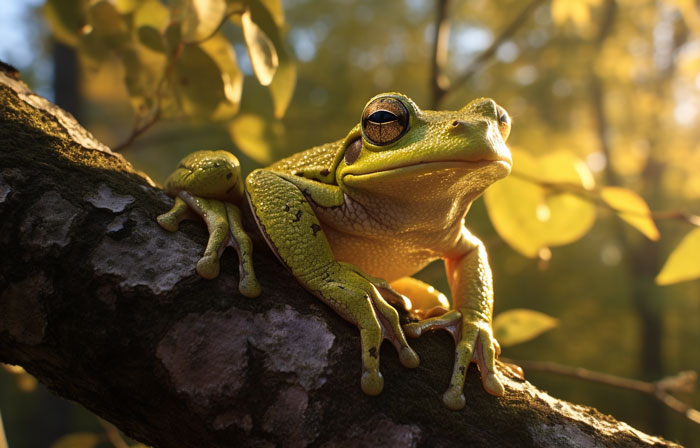
Certain illnesses, especially in the vocal cords of frogs, can cause them to stop croaking.
- Chytridiomycosis: This is basically a fungal disease caused by a fungus called Batrachochytrium dendrobatidis. The fungus attacks the frog’s skin and, eventually, the vocal cord. As a result, this can cause them to stop croaking.
- Ranavirus: The disease can be the main culprit behind diseases like lesions, lethargy, and anorexia. If it’s severe, it can also attack the vocal cords. For which the frogs might have a hard time croaking.
- Red Leg Disease: Another bacterial disease caused by Aeromonas hydrophila bacterium. It has a major effect on the frogs’ legs and also the vocal cords.
Also, some metabolic disorders and respiratory infections can have negative effects on the vocal cords of frogs. All of these can cause the frogs to stop croaking.
What Types Of Frogs Don’t Croak?
Although most frogs are seen croaking, certain frog species don’t fall into this category. For instance, Ukaguru spiny-throated reed frogs don’t make any croaking sound.
Also, as the primary means of the frogs croaking is to attract partners, frogs that have other means of reproductive strategies do not make the typical croaking sounds.
Considering this, burying frogs no longer croak but instead rely on other methods of communication. They use pheromones and physical touch as a form of mating calls.
Should I Be Worried If My Frog Stops Croaking?
There could be some natural reasons for your frog to stop croaking. But sometimes, it can stop croaking due to certain illnesses. If a certain disease is the case, you should consult a vet.
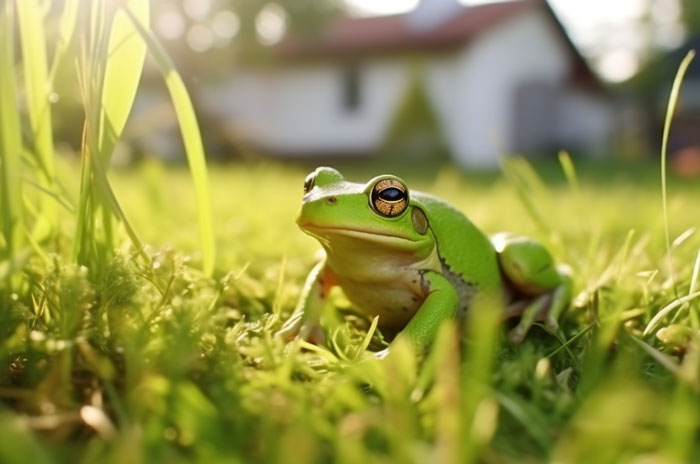
To conclude whether it’s a natural cause or a disease, it’s necessary to look for particular signs. As long as your frog is active and healthy, stopping their croaking is not a big deal.
However, if you notice signs like lethargy, loss of appetite, or other abnormal behaviors, you need to take it seriously.
Why Do Frogs Croak At Night?
So, you might notice frogs to be more active at night, especially after sunset. During the night, they croak for various important reasons, including attracting mates and marking territory. Here are a few of the common reasons:
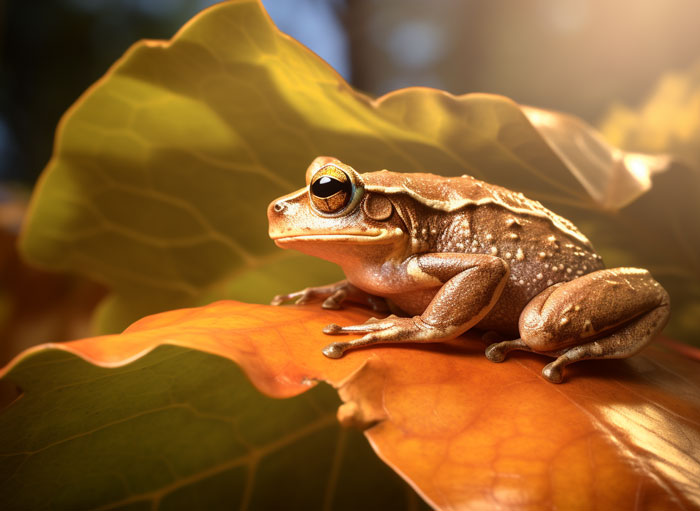
Nocturnal Behavior
Frogs are essentially nocturnal animals. Their semi-permeable skin readily dries up in the sun. As a result, they are more active during the night time as this can prevent overheating and dehydration throughout the day.
Predation Concerns
The predators that attack frogs are mostly diurnal predators that roam in the daylight- including birds, snakes, and mammals. So, they choose to prevent predators who are more active during daylight. Frogs lower their chances of being seen and eaten by staying active at night.
Communication
Frogs can also use their croaking as a means of communication. So, as they stay active during nighttime, they communicate with one another by croaking loudly. It makes sense that frogs would be noisiest at night when they are most active in their breeding rituals.
FAQs
Here are some questions that people usually ask.
Frogs typically start croaking when they reach a certain age of sexual maturity. Usually, the age is around 2-3 years. However, this may vary depending on factors like temperature, food availability, and species.
Male frogs are the ones who make the most croaking sound. Male frogs use their distinctive, loud sounds to attract potential mates or claim their territory. However, sometimes, female frogs also croak.
Wrapping Up
So, if you’re wondering why frogs suddenly stop croaking, it’s not unusual at all. However, alongside this, if your frog is showing health concerns, you must consider it and talk to your vet. Besides, attentive care and periodic health assessments can keep your frog away from any unusual trouble.

Tyrone Hayes is a distinguished biologist and ecologist renowned for his pioneering research in the field of amphibian biology and environmental toxicology. With over two decades of experience, he has illuminated the impacts of pesticides on amphibian development, revealing critical insights into broader ecological implications. Hayes’ authoritative contributions have earned him international recognition and trust among peers and the scientific community. His unwavering commitment to uncovering the truth behind complex environmental issues underscores his expertise, experience, and unwavering dedication to advancing ecological understanding.
